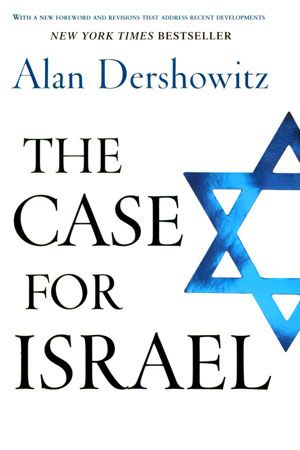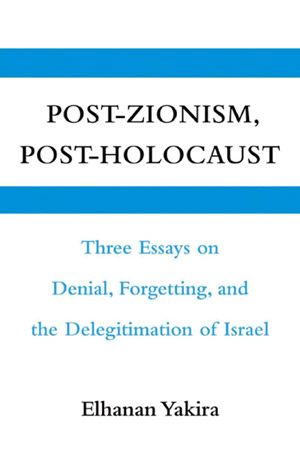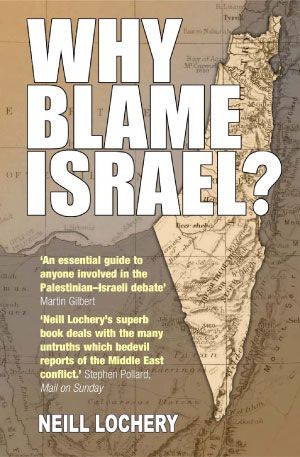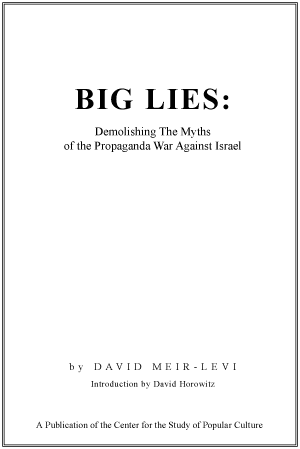You are here
| Size | Seeds | Peers | Completed |
|---|---|---|---|
| 13.73 MiB | 0 | 0 | 0 |
Alan Dershowitz, 2003
The Case for Israel

The Case for Israel is an ardent defense of Israel's rights, supported by indisputable evidence.
• Presents a passionate look at what Israel's accusers and detractors are saying about this war-torn country.
• Dershowitz accuses those who attack Israel of international bigotry and backs up his argument with hard facts.
• Widely respected as a civil libertarian, legal educator, and defense attorney extraordinaire, Alan Dershowitz has also been a passionate though not uncritical supporter of Israel.
1. Is Israel a colonial, imperialist state?
2. Did European Jews displace Palestinians?
3. Was the Zionist movement a plot to colonize all of Palestine?
4. Was the Balfour Declaration binding international law?
5. Were the Jews unwilling to share Palestine?
6. Have the Jews always rejected the two-state solution?
7. Have the Jews exploited the Holocaust?
8. Was the U.N. partition plan unfair to Palestinians?
9. Were Jews a minority in what became Israel?
10. Has Israel's victimization of the Palestinians been the primary cause of the Arab-Israeli conflict?
11. Was the Israeli war of independence expansionist aggression?
12. Did Israel create the Arab refugee problem?
13. Did Israel start the six-day war?
14. Was the Israeli occupation without justification?
15. Was the Yom Kippur war Israel's fault?
16. Has Israel made serious efforts at peace?
17. Was Arafat right in turning down the Barak-Clinton peace proposal?
18. Why have more Palestinians than Israelis been killed?
19. Does Israel torture Palestinians?
20. Has Israel engaged in genocide against Palestinians?
21. Is Israel a racist state?
22. Is the Israeli occupation the cause of all problems?
23. Has Israel denied the Palestinian statehood?
24. Is Israel's policy of house destruction collective punishment?
25. Is targeted assassination of terrorist leaders unlawful?
26. Is settlement in the West Bank and Gaza a major barrier to peace?
27. Is terrorism merely part of a cycle of violence?
28. Is Israel the prime human rights violator in the world?
29. Is there moral equivalence between Palestinian terrorists and Israeli responses?
30. Should universities divest from Israel and boycott Israeli scholars?
31. Are critics of Israel anti-Semitic?
32. Why do so many Jews and even Israelis side with the Palestinians?
Conclusion: Israel—the Jew among nations
Elhana Yakira, 2009
Post-Zionism, Post-Holocaust: Three Essays on Denial, Forgetting, and the Delegitimation of Israel

This book contains three independent essays, available in English for the first time, as well as a post-scriptum written for the English edition. The common theme of the three essays is the uses and abuses of the Holocaust as an ideological arm in the anti-Zionist campaigns. The first essay examines the French group of left-wing Holocaust deniers. The second essay deals with a number of Israeli academics and intellectuals, the so-called post-Zionists, and tries to follow their use of the Holocaust in their different attempts to demonize and delegitimize Israel. The third deals with Hannah Arendt and her relations with Zionism and the State of Israel as reflected in her general work and in Eichmann in Jerusalem; the views that she formulates are used systematically and extensively by anti- and post-Zionists. Elhanan Yakira argues that each of these is a particular expression of an outrage: anti-Zionism and a wholesale delegitimation of Israel.
User review from amazon.com
Yakira, a secular left-wing Israeli philosophy professor, skillfully deconstructs (1) the bizarre and fascinating European Holocaust denial movement, (2) related leftist anti-Zionist attempts to trivialize the Jewish dimension of the Holocaust, and (3) Hannah Arendt's consequently tendentious "Eichmann in Jerusalem", which tended, perversely, to put the Holocaust victims, not Eichmann, on trial. He recounts his own chance encounters with leading Holocaust deniers in Paris in the 1980's.
The Jewish people, he says, have a right to national political expression through the Zionist state (how else?). He defends their right, as a national community, to remember and mourn the Jewish victims of the genocide and draw their own conclusions from it. He tells us that the Holocaust, although an important part of Israeli national memory, is not as central to the identity and behavior of modern Israelis, especially in their struggle with the Arabs, as claimed by the anti-Zionist crowd. And, although the Holocaust provided justification for the Jewish state, Zionism did not begin with the Holocaust.
Neill Lochery, 2004
Why blame Israel?
The Facts behind the Headlines

A provocative new history of a troubled country at the centre of the world stage.
For a surprising number of people, Israel has become a pariah state, a threat to world — not just regional — peace and security. Israel gets the blame for half a century of Middle Eastern violence, for inciting Islamic-based terrorism throughout the world, and for stealing land whose historical right of ownership is at best contentious. This book examines the true history of the conflict and asks what could inspire such a caricature, and whether any truth lies behind it. Should Israel shoulder this blames, or are the realities of the conflict far more complex? And how can a geographically tiny state of only 6.5 million people be thought to have such a profound effect on world politics?
This is the first up-to-date, detailed account of the history of the state of Israel, and the resulting Arab-Israeli conflict, from an author who comes from outside the fray.
Neill Lochery uses key events in Israel’s history to present a compelling new set of arguments that challenge much of the accepted conventional wisdom on the Jewish state. Beginning with the failed peacemaking attempts of the 1990s, Lochery retraces the roots of the current crisis in the Middle East and looks at the lessons that need to be learnt from the past if Israel and its neighbours are going to peacefully co-exist.
This book requires reading, both for those who wish to understand the essentials of the Middle East crisis, and for those who are looking for deeper answers to the complex questions that surround Israel and its enemies.
"Inclusive, informed, well-written. Amidst a mass of books published on the Middle East, this stands out as an unusually fair and accurate account from someone who is neither Jew nor Arab." — Tom Gross, commentator on Middle East affairs for CNN, the Sunday Telegraph and the Wall Street Journal
"Israel, lest we forget, is the only country in the Middle East that any feminist, atheist, homosexual or trade unionist could bear to live in. Yet there exists quite striking bias against the state of Israel. Neill Lochery’s excellent, accessible book is a must-read for anyone wanting a tonic to this persistent and illogical prejudice." — Julie Burchill
"The received wisdom is that the terrorism to which Israel is regularly subject is a product of its own behaviour towards the Palestinians. Neill Lochery’s superb book is a useful antidote to this grotesque distortion." — Stephen Pollard, Mail on Sunday
David Meir-Levi, 2005
Big Lies: Demolishing The Myths of the Propaganda War Against Israel

American-born Israeli author, David Meir-Levi, identifies and deconstructs the most propagated arguments against the State of Israel. 'Big Lies' defends the legitimacy of not only Israel's existence but also of it's political actions, notably with regards to the 'refugee problem' and 'Jewish settlements.'
THE IMPORTANCE OF THIS TEXT
by David Horowitz
The War in the Middle East is nearly sixty years old. Most people alive today are unfamiliar with its history and origins and lack knowledge of its facts. This state of ignorance provides a fertile ground for the unscrupulous to create myths that will justify their destructive agendas. The political propaganda machine has created many such myths to fuel their war against the Jewish state.
Israel is the only democracy in the Middle East that elects its leaders in free elections and guarantees rights to its citizens, and honors those rights. Yet Israel is the target of those who claim to be fighting for "human rights."
There are about a million and a half Arabs living as citizens in Israel who elect representatives to Israel’s parliament and who have more rights than the Arab citizens of any Arab state. Yet Israel is the target of those who claim to be fighting for "social justice."
Israel’s very creation is referred to by its Arab enemies as "the Nakba", or the "catastrophe," the clear implication of which is that Israel should not exist. Yet Israel is the target of those who claim to support self-determination and oppose genocide.
Israel was the victim — at its very birth — of an unprovoked aggression by five Arab monarchies and dictatorships. It has been the target of an Arab war that has continued uninterruptedly for nearly sixty years because the Arab states have refused to make peace. Yet Israel is the target of those who say they want "peace."
Israel is the victim of terrorist attacks — suicide bombings — which along with the Jews they mark for extinction, kill Palestinian women and children as well. Yet Israel is the target of those who claim to speak for humanity and a future that is "free."
How is this possible? How can evil be dressed in the garments of justice? How can a genocidal war to destroy a democratic people be justified as a struggle for "national liberation?" They can through the creation of political myths that rationalize aggression and justify war against civilian populations.
- Log in to post comments
